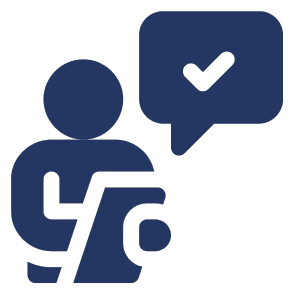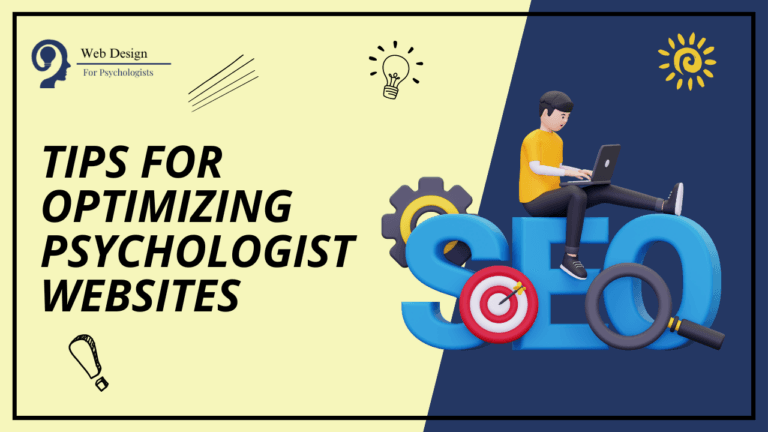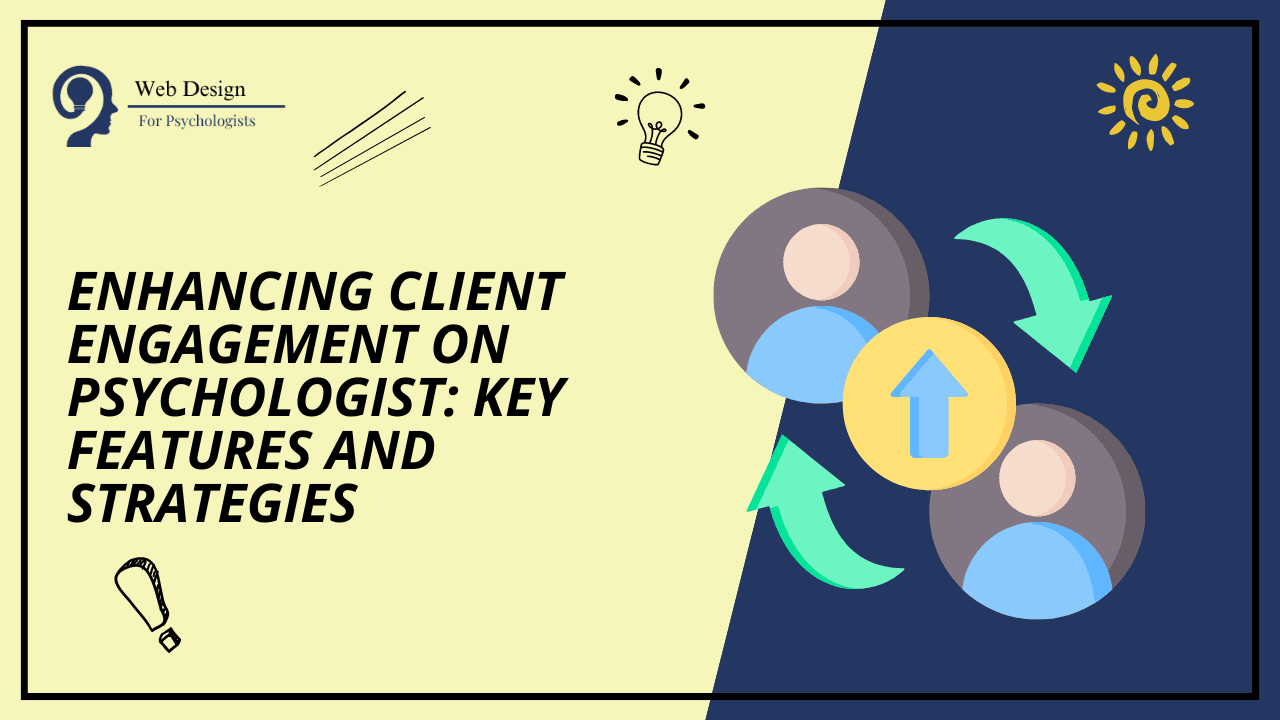Tips for Optimizing Psychologist Websites
In the digital age, having a strong online presence is crucial for professionals in every industry, including psychologists. Your website is often the first point of contact for potential clients seeking your services, making it essential to ensure that it not only showcases your expertise but also ranks well in search engine results. This is where Search Engine Optimization (SEO) comes into play. In this comprehensive guide, we’ll explore effective tips for optimizing psychologist websites to enhance visibility, attract more clients, and ultimately grow your practice.
Keyword Research for Psychologist Niche

Before diving into optimizing your psychologist website, it’s imperative to conduct thorough keyword research. Keywords are the terms and phrases that potential clients are likely to use when searching for services related to psychology. Utilizing tools like Google Keyword Planner, SEMrush, or Ubersuggest can help you identify relevant keywords with high search volumes and moderate competition.
When conducting keyword research for psychologist websites, consider terms such as “psychologist near me,” “therapy for anxiety,” or “counseling for depression.” Additionally, focus on long-tail keywords that are more specific and have higher conversion potential, such as “child psychologist in [your city]” or “online therapy for PTSD.”
On-Page Optimization Techniques
Once you’ve identified your target keywords, it’s time to optimize your website’s on-page elements. On-page optimization involves optimizing individual web pages to rank higher and earn more relevant traffic in search engines. Here are some key on-page optimization techniques for psychologist websites:
- Title Tags and Meta Descriptions: Craft compelling title tags and meta descriptions that incorporate your target keywords while accurately describing the content of each page. Keep them concise, relevant, and click-worthy to entice users to click through to your website.
- URL Structure: Ensure that your website’s URLs are clean, descriptive, and contain relevant keywords. Avoid using generic URLs with numbers or random characters. Instead, opt for URLs that reflect the content of the page, such as “yourwebsite.com/services/therapy-for-anxiety.”
- Header Tags: Use header tags (H1, H2, H3, etc.) to structure your content logically and improve readability. Incorporate your target keywords into headings and subheadings where appropriate, but prioritize natural language and user experience.
- Optimized Content: Write high-quality, informative content that addresses the needs and concerns of your target audience. Incorporate your target keywords naturally throughout the content, but avoid keyword stuffing, which can harm your SEO efforts.
- Image Optimization: Optimize images on your website by using descriptive filenames and alt text that include relevant keywords. This not only improves accessibility for visually impaired users but also provides search engines with additional context about your content.
Creating High-Quality, Relevant Content
Content is king in the world of SEO, and this holds true for psychologist websites as well. Creating high-quality, relevant content not only engages visitors but also helps establish your authority and expertise in the field. Here are some tips for creating compelling content:

- Blog Posts: Maintain an active blog on your website where you can share informative articles, tips, and insights related to psychology and mental health. Address common concerns, debunk myths, and provide valuable advice to your audience.
- Case Studies/Testimonials: Showcase success stories from past clients through case studies or testimonials. This not only adds credibility to your practice but also provides potential clients with social proof of your effectiveness.
- FAQs and Resource Pages: Create FAQ pages or resource sections where you can address frequently asked questions and provide valuable resources, such as articles, videos, or recommended readings.
Utilizing Meta Tags Effectively
Meta tags play a crucial role in helping search engines understand the content of your web pages. While meta keywords are no longer considered a ranking factor, meta titles and descriptions are still important for SEO. Here’s how to utilize meta tags effectively:
- Meta Titles: Craft descriptive and keyword-rich meta titles that accurately summarize the content of each page. Keep them under 60 characters to ensure they display properly in search engine results.
- Meta Descriptions: Write compelling meta descriptions that entice users to click through to your website. Include relevant keywords and a clear call-to-action to encourage engagement.
- Meta Robots Tag: Use the meta robots tag to control how search engines crawl and index your web pages. For pages you want to exclude from search engine results, use the “noindex” directive.
By implementing these tips for optimizing psychologist websites, you can improve your website’s visibility, attract more qualified traffic, and ultimately grow your practice. Remember that SEO is an ongoing process, so continue to monitor your website’s performance, adapt your strategies as needed, and stay up-to-date with the latest industry trends and best practices. With dedication and persistence, your psychologist website can become a valuable asset in reaching and helping those in need of your services.




